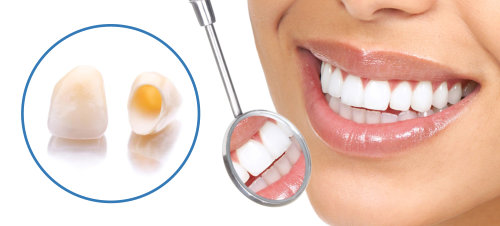What Dental Crowns Do for Your Tooth’s Lifespan
Dental crowns provide a variety of restorative benefits. A dental crown can restore your tooth’s shape and functional strength, provide the surface portion of a dental implant, improve the overall appearance of a damaged tooth, protect your tooth from decay, restore a broken, cracked, or chipped tooth, and be used to secure a dental bridge.
Teeth are tough. But they’re also vulnerable and will occasionally require restoration. It’s essential that you care for them to help assure they stay healthy. Even so, your teeth can be damaged by disease, decay, or other damage that requires restorative dentistry.
Tooth restoration should look natural. It should also improve the long-term function of a tooth that requires treatment. Dental crowns accomplish both. Your crown will naturally match your surrounding teeth plus it strengthens it for long-lasting function.
From temporary to permanent
Your dental crown treatment will most often require two appointments. Your procedure begins with an examination and x-rays to accurately diagnose your tooth damage or tooth decay.
The remaining, healthy portion of your tooth structure will be prepared along with any preparation required by your adjoining teeth. This prep work is essential to assure that your crown will fit properly.
A dental impression (mold) is taken. This gives our dental lab the necessary details to craft your permanent crown.
Your first appointment provides you with a temporary crown while your permanent crown is being made. This protects your prepared tooth structure and allows you to experience normal tooth function while awaiting your new, permanent crown.
The temporary crown is removed at your second appointment once your permanent dental crown is delivered and ready for placement.
Your new permanent crown will be placed and adjusted for fit and bite alongside your adjoining teeth.
Routine dental care helps keep your crown and surrounding gum tissue healthy. Brush, floss, and prioritize your dental examinations and teeth cleanings to keep your dental crown healthy and functioning properly.
It’s also essential to safeguard your crown with a proper diet. Be careful when enjoying hard or sticky foods and snacks to avoid detaching your crown.
Contact your Knoxville dentist about your tooth damage or tooth decay. Schedule a dental examination to determine if a crown is necessary to restore your tooth function, oral health, and appearance.





